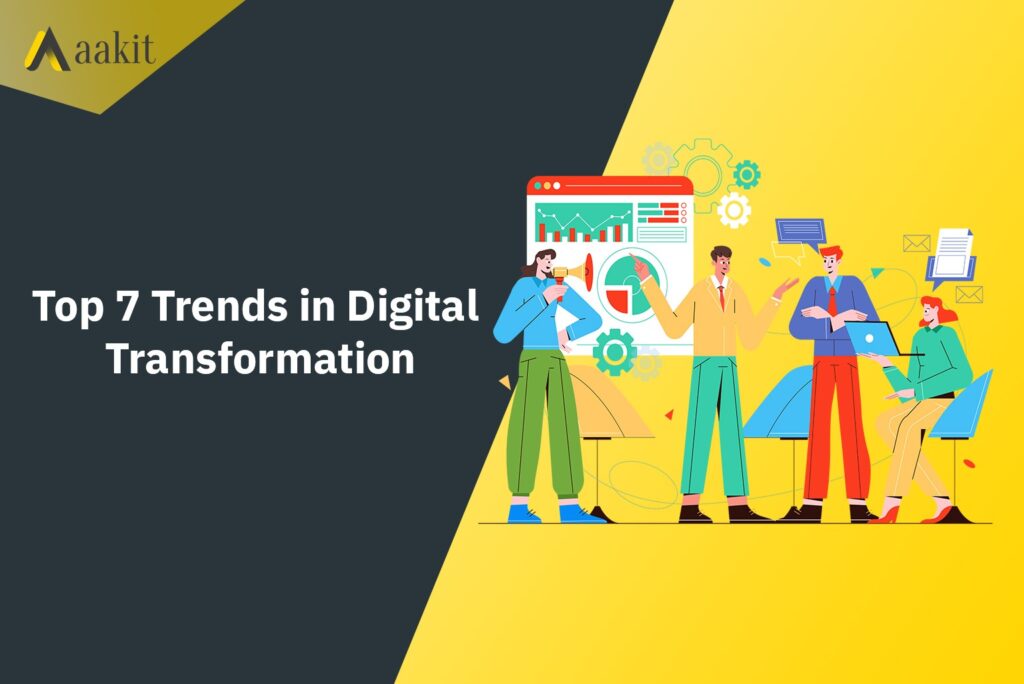INTRODUCTION
Cloud computing is often heard as part of the business jargon today. But in reality, it is the storage of software programs, applications, and data on a network of remote servers on the internet instead of directly on a local server or personal computer. Cloud computing is more efficient, and it fosters faster business operations. Due to this reason, its adoption rate has increased tremendously in recent years. Especially in the face of a global pandemic, more organizations are turning to cloud-based SaaS models.
According to GlobeNewswire, the cloud computing market is valued at US$ 405,295.8 million in 2022 and is expected to reach US$ 1,465,818.2 million by 2028, growing at a CAGR of 23. 9% from the forecast period 2022 to 2028.
Generally, cloud computing is categorized into three types:
- Public cloud
- Private cloud
- Hybrid cloud
In detail, let’s now understand these cloud computing types and their benefits for businesses:
WHAT IS PUBLIC CLOUD?
The public cloud is the most significant solution shared across organizations or cloud tenants. It is operated by a third-party cloud service provider and delivered via the internet. The third-party cloud service provider owns and maintains all cloud resources, such as the servers and databases, and provides access based on a subscription model. Some of the most significant public cloud providers are SAP HANA, Amazon Web Services (AWS), VMware, IBM, Google Cloud Platform, and Microsoft Azure. There are primarily three types of public cloud services:
- Software-as-a-Service (SaaS) – With SaaS, an external cloud service provider gives the user access to cloud applications that can be accessed via a web browser or a dashboard or API.
- Platform-as-a-Service (PaaS) – With PaaS, an external cloud service provider caters to the hardware and a basic application-software platform to the user. The user can use this infrastructure as the backbone to develop and maintain applications based on their requirements.
- Infrastructure-as-a-Service (IaaS) – With IaaS, an external cloud service provider rents out cloud infrastructure to a user and is solely responsible for maintaining infrastructure involving the data storage, servers, network, etc. On the other hand, the user handles the software-related resources such as the OS and the applications independently.
| Pros | Cons |
|
|
WHAT IS PRIVATE CLOUD?
One organization uses a private cloud exclusively, with all the resources dedicated to one business. The business can either opt to hold their private cloud on-premise, i.e., at the company’s physical data center, or employ a third-party provider to host their cloud. In the case of hosted private clouds, the third-party provider maintains and manages the cloud for a stipulated fee from the organization. One of the primary benefits of having a private cloud is that an organization can customize its resources to meet its requirements.
| Pros | Cons |
|
|
WHAT IS HYBRID CLOUD?
As the name suggests, a Hybrid cloud is a cloud computing ecosystem that combines the use of both public and private cloud services to create a unified, flexible, and cost-effective cloud infrastructure. Based on the user’s needs, a hybrid cloud allows application portability between the private and public parts of the cloud, wherein resources from either cloud type can be used to perform the required tasks. A Hybrid cloud is considered to be considerably better than exclusively using public or private cloud computing since it is more cost-effective and efficient.
| Pros | Cons |
|
|
Quick Comparison of Cloud Computing Types
Let’s quickly compare the pros and cons of the three cloud computing types to understand better what is best for your business.
| Public Cloud | Private Cloud | Hybrid Cloud |
| Less costly | The Total Cost of Ownership leads to higher cost | Optimal costs |
| Highly reliable | Highly customizable | Highly flexible and customizable |
| Highly scalable based on need | Reduced scalability | Extremely scalable |
| No maintenance-related liability for the user | In the case of on-premise clouds, the user is responsible for the entire maintenance | Maintenance can get increasingly complex due to more resources that are involved |
| User has lesser control over the infrastructure used | User has complete control over the infrastructure used | Lesser probability of resource downtime |
| Costs can grow rapidly based on usage | Dedicated resources | Constant juggling between multiple resources |
| Risk of security threats from shared resources | Extremely secure | Balanced resource optimization |
PUBLIC vs. PRIVATE vs. HYBRID CLOUD MODEL – Which one to choose for your business?
Now that we have seen the pros and cons of the different cloud computing systems, the most important question arises – which model should you choose for your business? Well, here are some pointers to keep in mind.
- If your organization has an existing on-premise infrastructure, creating your own private cloud would be an effective investment. However, maintenance, management, and security liability fall squarely on your shoulders. But if your business requires high security, a private cloud is a way to go as you can control all security areas, be it the physical infrastructure or the databases and networks. Private clouds are often preferred by entities such as banks and federal agencies that deal with secure and critical information daily.
- If your business has specific computing needs and has less sensitive data needs that require a predictable set of resources, then you can opt for a public cloud. Public clouds are entirely managed and maintained by a cloud service provider and are constantly kept up-to-date to provide you with high-functioning resources.
- However, if you need the best of both worlds, opt for a hybrid cloud that unifies public and private cloud environments. While you can use the public cloud to perform temporary and less critical tasks. And you can use the private cloud to perform highly secure and confidential tasks. Simply put, hybrid clouds are the best option in highly regulated industries.
CONCLUSION
While we cannot single out a specific type of cloud computing as the best, you can make an informed choice based on your business requirements. To start with, understand the benefits, risks, and costs associated with each cloud solution. Following this, assess your own business and infrastructure capabilities to determine the best cloud computing option to suit the same. However, irrespective of which cloud environment you choose, ensuring that you have the right team and cloud service provider necessary to execute the cloud adoption successfully is critical.
HOW AAKIT TECHNOLOGIES CAN HELP?
AAKIT Technologies deliver consistent and high-impact solutions to help create agile organizations. We are a certified SAP partner, and leading businesses across industries trust us as their long-term partner for implementing SAP solutions to derive immense value. We offer a new SAP-generation product suite to help organizations worldwide solve complex real-time business problems and unlock business value from IT investments.
To know how we can help, write to us at sales@aakit.com or reach out at Contact Us | SAP consulting companies in India – AAKIT Technologies .



